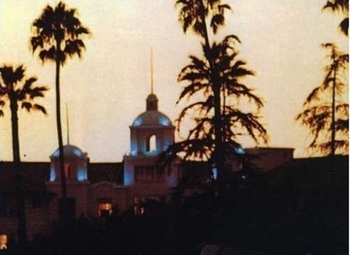
I know I said that the review last weekend would be my 100th post. But I realized that, if you don’t include my announcements, and instead count only those posts which include music, I was early. As nearly as I can tell, this is actually my 100th post by that count. So, in honor of the occasion, I wanted to deal with a question I sometimes get asked.
We bloggers hear from artists and their managers, agents, and promoters all the time. They always have the perfect band for your blog. And sometimes it works. But, all too often, it doesn’t. The ones I have the most respect for are those who have listened to some of what I post, and only contacted me afterwards. But I also really appreciate the ones who ask me what kind of music I like. Unfortunately, that is not an easy question for me to answer, because I have varied tastes, and I won’t rule out for this blog anything that catches my ear. So, for my 100th music post, I thought I would attempt to give some guidance to artists and their representatives.
Joni Mitchell: Harry‘s House - Centerpiece
[purchase]
I know I just posted Joni Mitchell, but her music has to be part of this discussion. I value her for her evocative lyrics, and for her willingness to try new things musically. Harry’s House - Centerpiece also includes some fine jazz singing in the middle section. I would like to hear from jazz singers about possibly being featured here.
Dave Carter and Tracy Grammer: I Go Like the Raven
[purchase]
Here is another example of evocative lyrics. Dave Carter and Tracy Grammer also used spare arrangements for their songs, giving each song exactly what it needs. This is a hard quality to define, but one that I have mentioned in my reviews. I Go Like the Raven has a mystical/ spiritual subtext, which is a bonus for me. If your work evokes an unusual spiritual viewpoint, without being heavy-handed about it, I’d like to hear from you.
Steve Earle and the Del McCoury Band: Carrie Brown
[purchase]
A blast of bluegrass is always welcomed here. And it doesn’t get any better than the Del McCoury Band. I also appreciate Steve Earle stretching out. Earle is one of our most eloquent political songwriters. Much as I admire Joni Mitchell’s songwriting, I don’t think she is a very good political songwriter. Steve Earle is.
Kate Bush: The Sensual World
[purchase]
I like spare arrangements, but I also love it when and artist can create a rich aural soundscape. This kind of thing can really fall on its face when done badly, but Kate Bush can include Celtic influences and a Bulgarian folk choir in the same song, and make it work. Peter Gabriel is also a master of this. Talking Heads used the intricacies of African rhythms to powerful effect.
The Toasters: Weekend in LA
[purchase]
Finally, I want everyone to know that I love ska. I have featured some of it here, but I would like to do more. If you know of someone who is in a ska band, please steer them in my direction.
**********************************************************
So there are five songs that give some idea of what I like. I didn’t have space to talk about my love of acoustic blues and the classic Chicago sound. I didn’t get to any songs that show the influence of classical music. But I hope I have given people some ideas of what I would like to consider for inclusion here. I look forward to sharing the results with everyone, and, as always, I welcome your comments.













